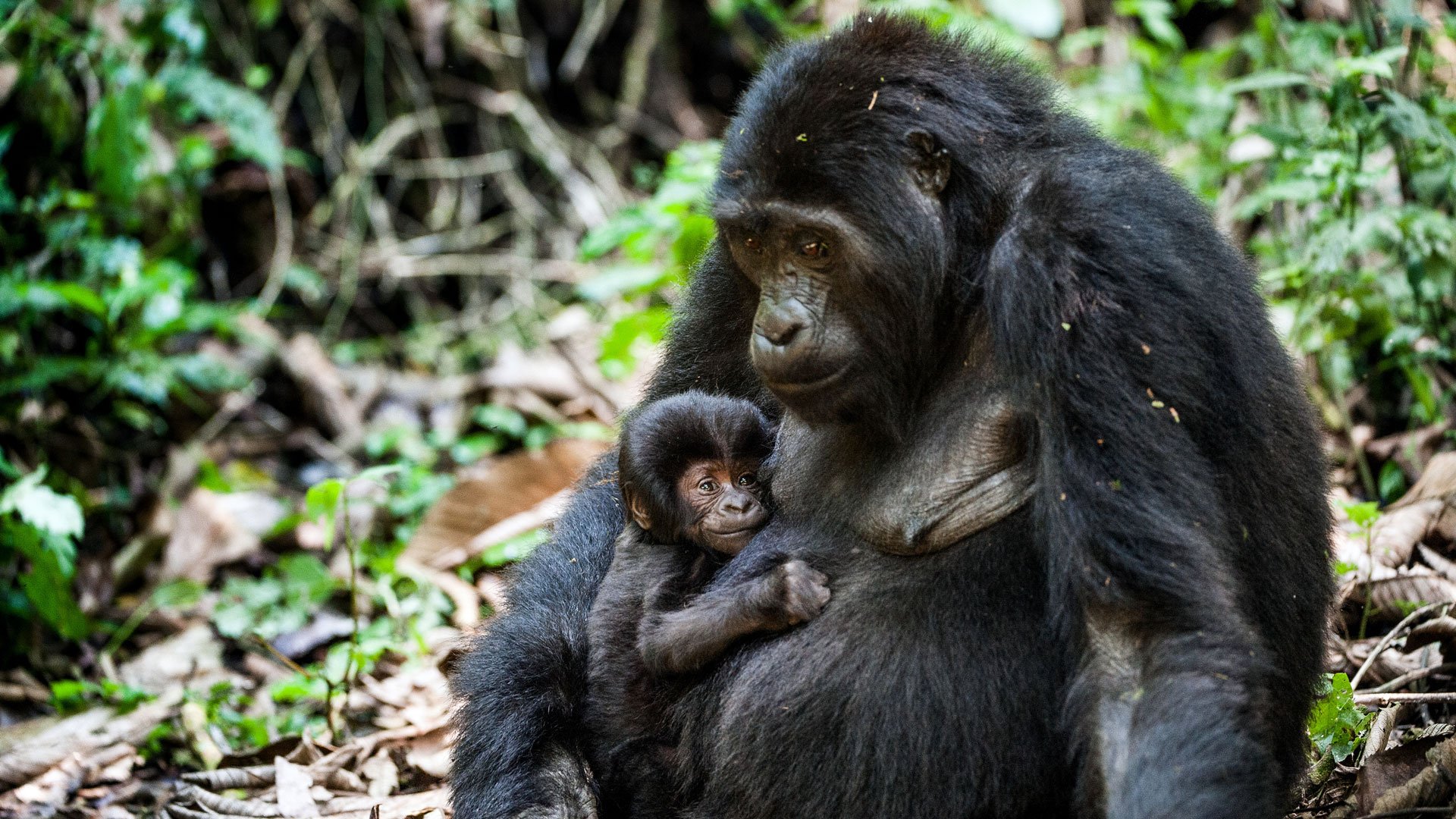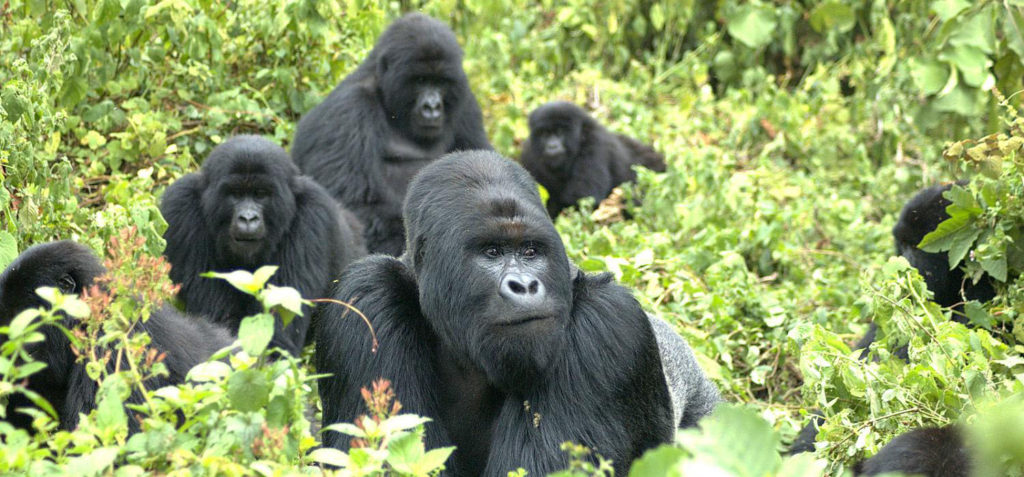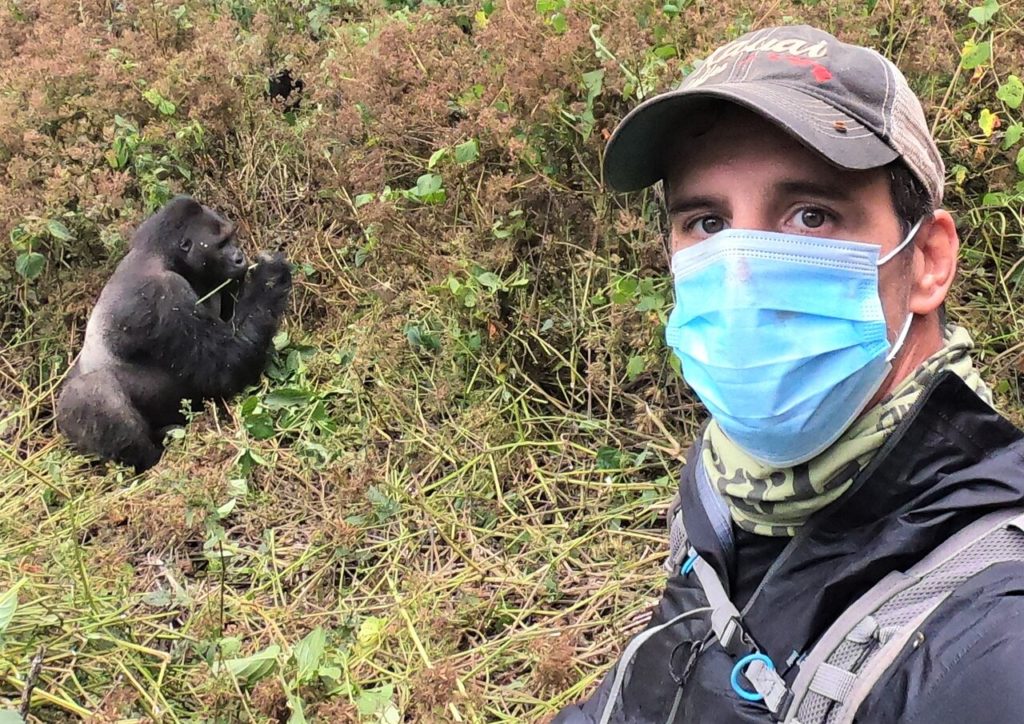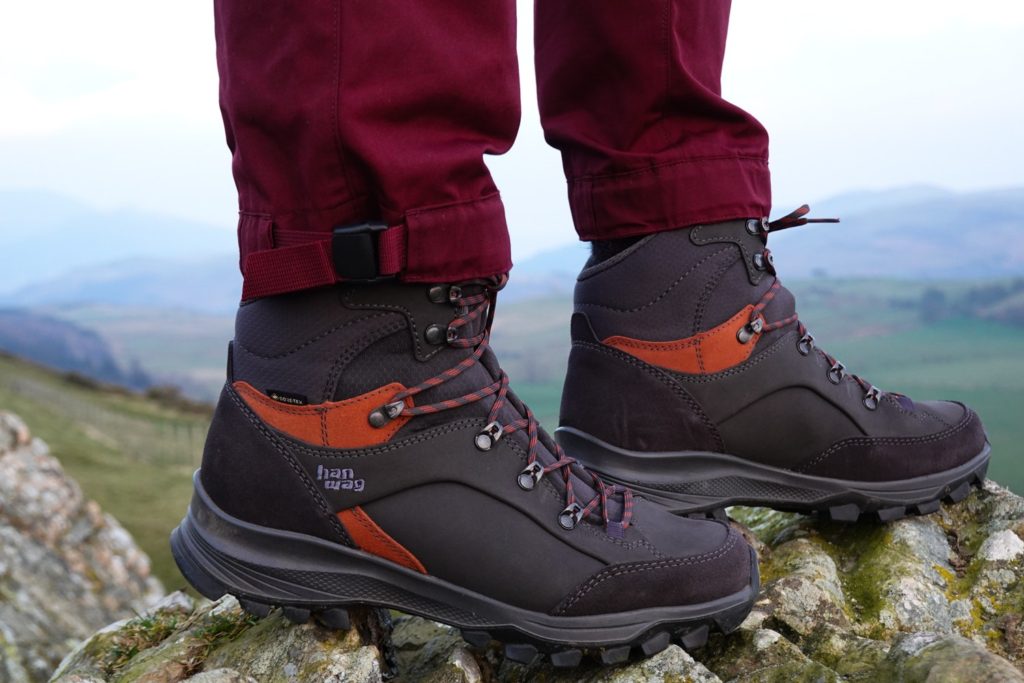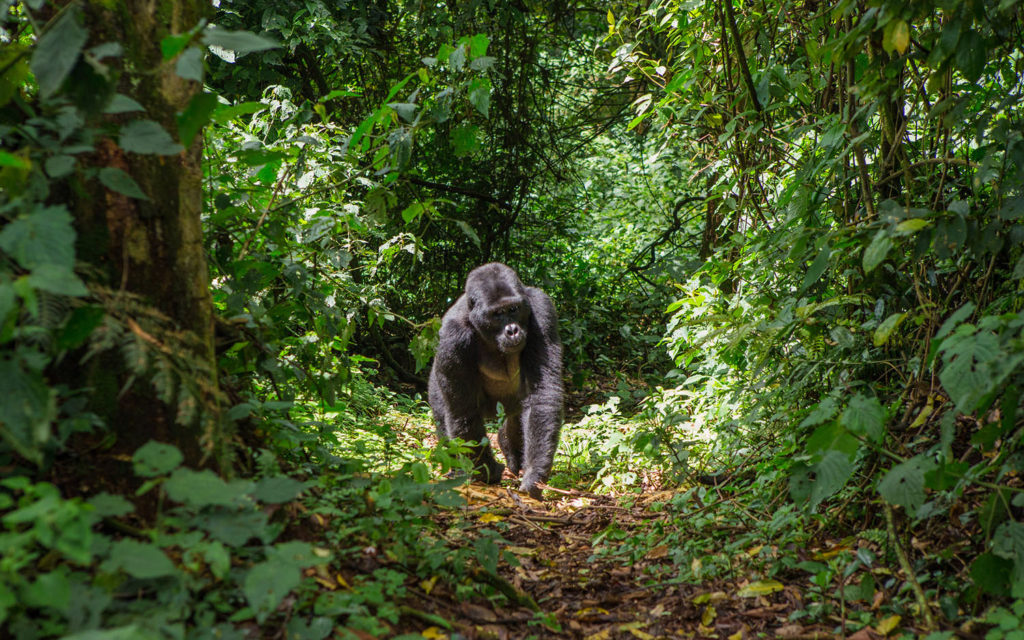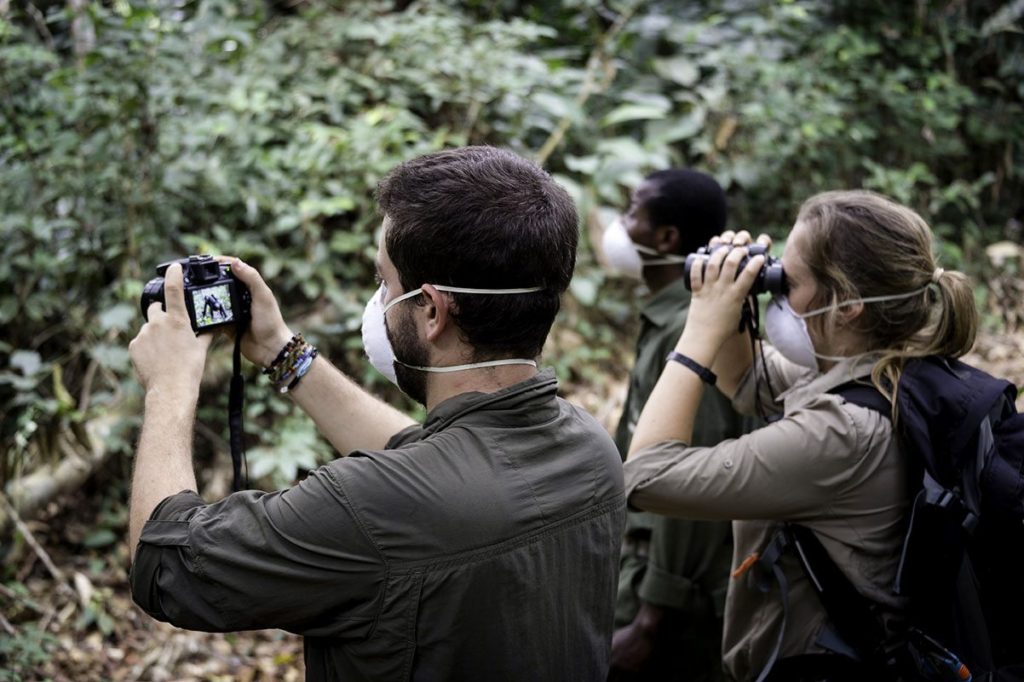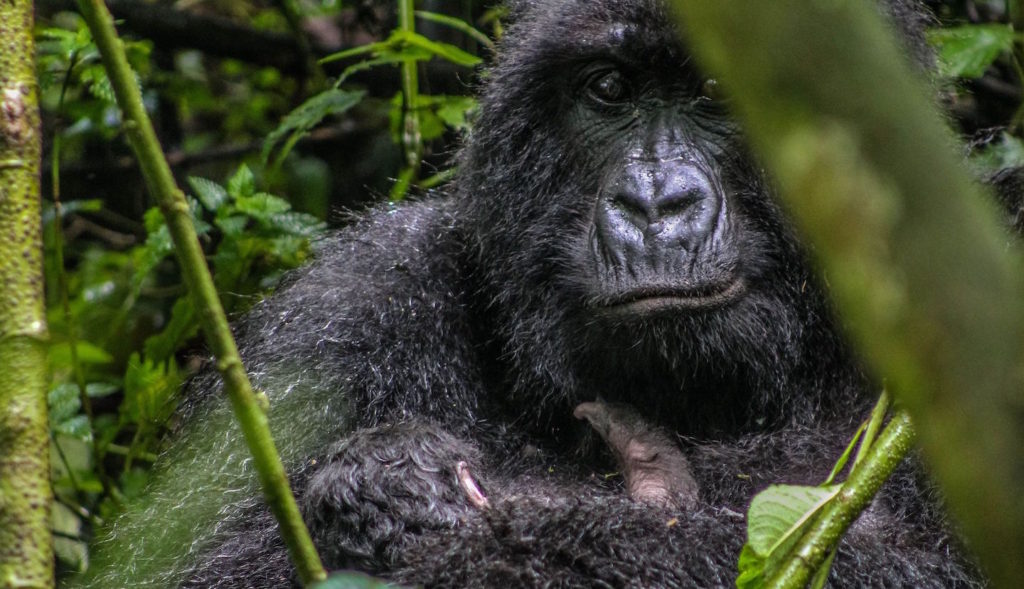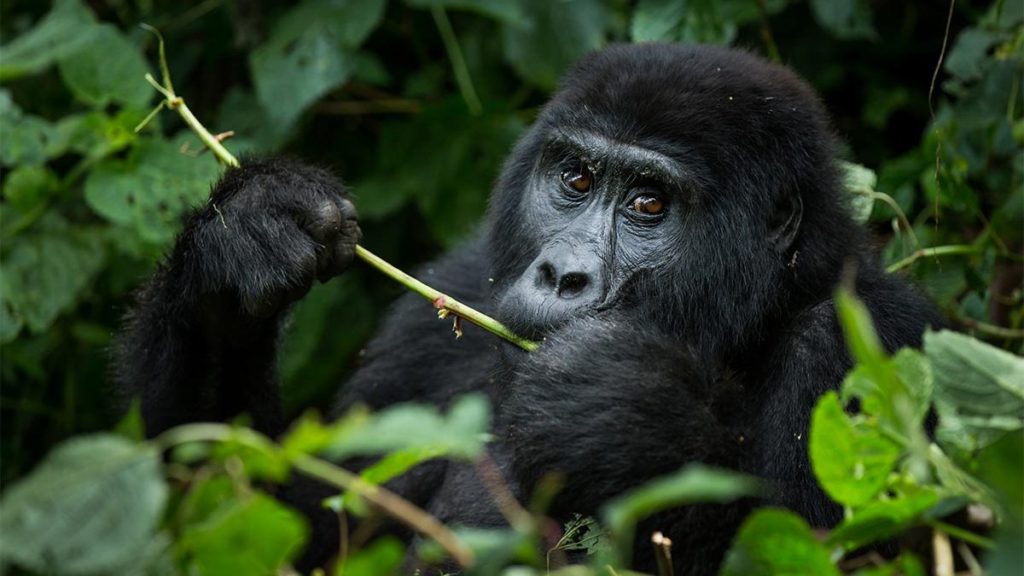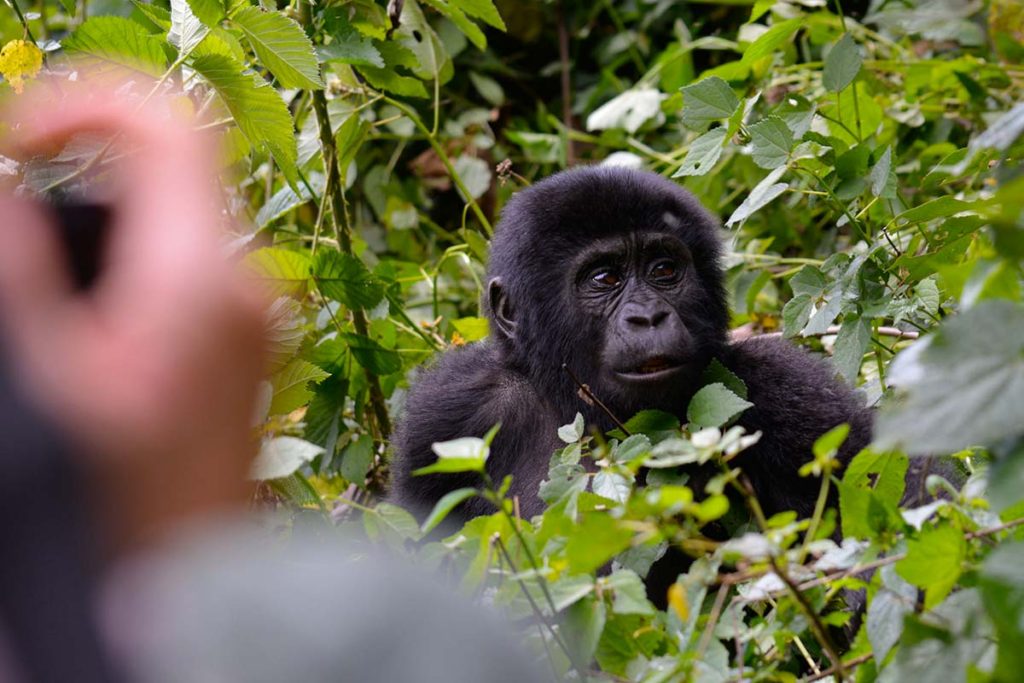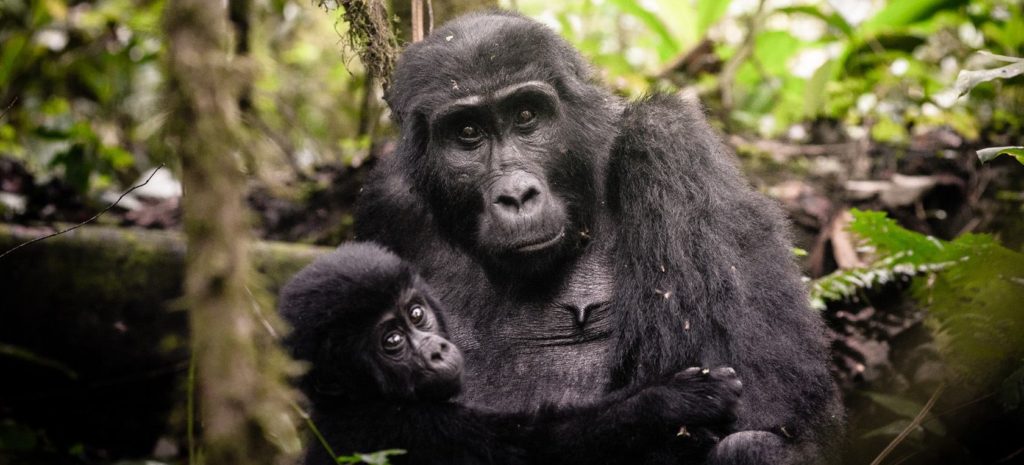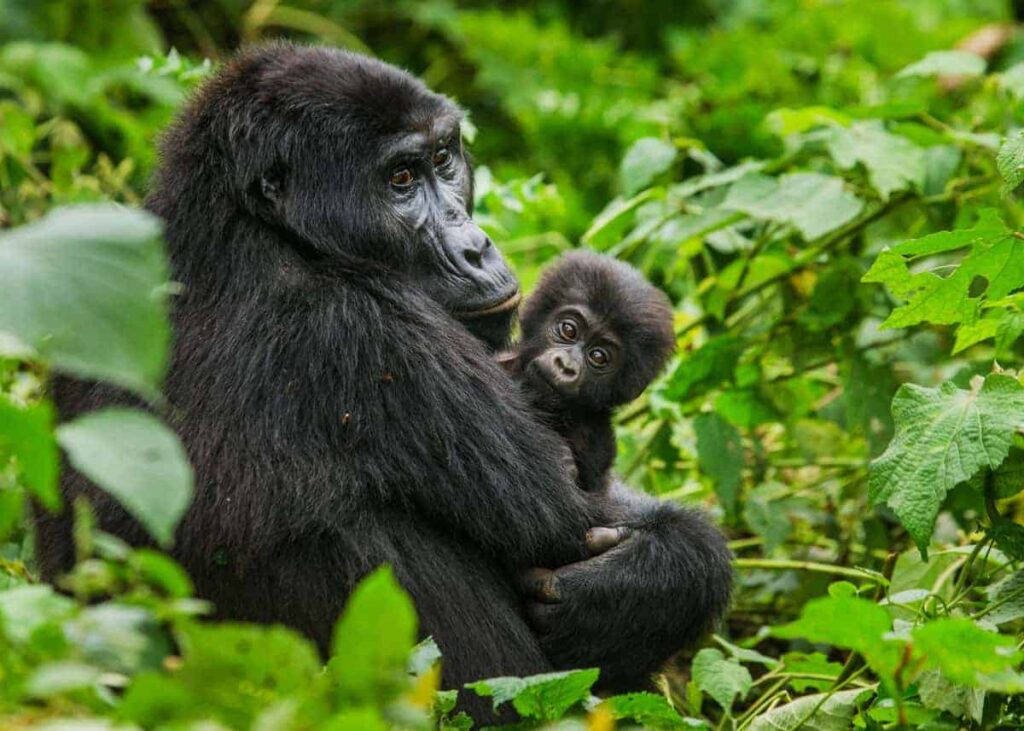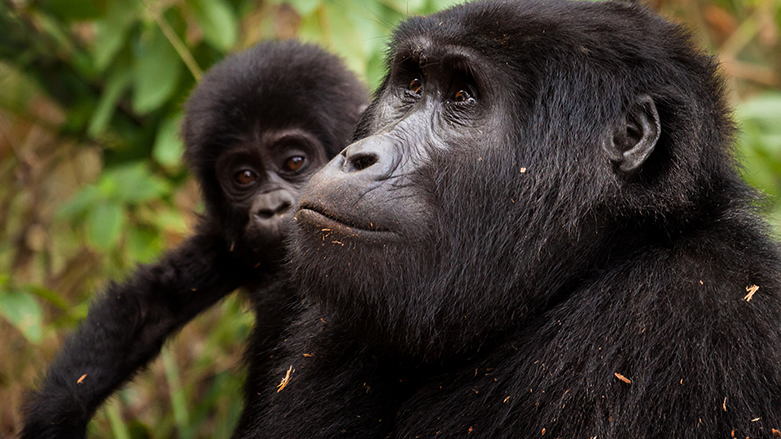“How Ethical is Gorilla Trekking?” – is a common question we get from conscious clients intending to book their once-in-a-lifetime primate tracking experience. In response to whether Gorilla trekking is ethical, we like to say ” Yes Gorilla Trekking is ethical if you follow the set Gorilla Trekking rules and regulations.
How Ethical is Gorilla Trekking?
Presently as we write, there approximately 1036 Mountain gorillas still surviving in the wild in East Africa; Uganda, Rwanda & DR. Congo. The safest of these three Gorilla trekking destinations mentioned above are Uganda & Rwanda. Gorilla Trekking In DR Congo is considered unsafe – curious why it is unsafe? Read our Blog: Reasons why Gorilla Trekking in Congo is Unsafe.
Gorilla Trekking In Bwindi Forest national Park park started in 1993 with only one (01) family (Mubare Gorilla Family) available for Gorilla Trekking. The habituation of the Mubare Gorilla group started out in 1991 and lasted two years before it was officially opened for tourism on 13th/October/1993. From only one habituated gorilla Family, Bwindi currently has an additional 19 Habituated Gorilla Families bringing the total to 20 habituated mountain gorilla families living in Bwindi Forest National Park.
As for Rwanda, gorilla trekking in Volcanoes National Park – the only place in Rwanda where you can track, see and Photograph or film mountain gorillas, gorilla trekking started out with the Agasha family as the only habituated Gorilla group open for visitors to trek. Agasha then had only 13 individuals but currently boasts of approximately 27 mountain gorillas within the family.
Irrespective of whether you choose to go gorilla Trekking In Rwanda or Uganda, all visitors are required to have pre-purchased a gorilla permit in order to trek Gorillas. In Rwanda, Gorilla permits cost $1,500 per person, and in Uganda, they cost $700 per person. By purchasing a permit you’re directly supporting the conservation of the gorillas, protecting the gorillas from poachers, and helping with invaluable research.
Mountain Gorilla Tourism plays an important role in the conservation efforts of these gentle giants. That said, there are strict rules that govern gorilla trekking which includes a set limit on the number of visitors allowed each day, and regulations are in place to ensure the trekking is done in a way that does not cause any distress to the gorillas, or any damage to their environment thus qualifying it as “ethical”. The rise of mountain gorilla numbers from 480 to 1000 plus – is a testimony that Gorilla trekking is ethical.
The Rules & Regulations
On the day of your trek, you will attend a detailed briefing from your UWA/RDB guide before your gorilla trek. During the briefing, your guide will outline the rules you must follow. Notably, these will include:
- Keep 7 metres away from the gorillas at all times to prevent the risk of spreading diseases
- If you’re unwell, do not attend a trek
- Do not eat or drink around the gorillas
- Never feed the gorillas
- Be careful not to drop any rubbish
- Do not touch the gorillas
- Try to avoid looking them directly in the eye, as this can be perceived as you challenging them, which can cause them to charge
- If gorillas charge, look down, crouch down slowly, and be quiet
- Avoid making any loud noises
- Do not purchase souvenirs made out of wildlife products
- No flash photography, as this can scare them
- Listen to the instructions of your guide at all times
Related: Gorilla trekking Rules.

